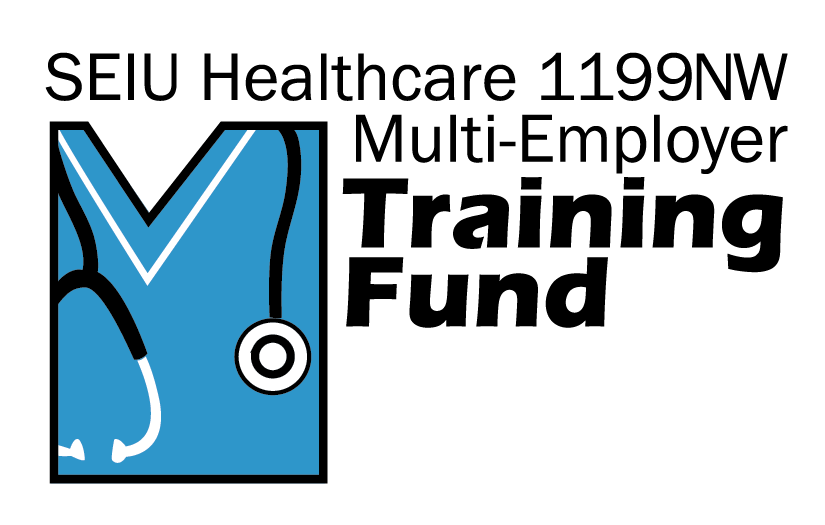
L to R: SUDP Apprentice Malissa Kautz, Training Fund Executive Director Laura Hopkins, SUDP Mentor Jordan Brooks, Sea Mar Senior Vice President Claudia D’Allegri.
Ask anyone working in behavioral health, like licensed Substance Use Disorder Professional counselor Jordan Brooks, and they’ll tell you the same thing: behavioral health workers are needed now more than ever across Washington state. “These programs that create more behavioral health professionals are going to save lives,” Brooks says.
The Health Care Apprenticeship Consortium (HCAC) is one such program, rising to the challenge of creating more licensed professionals and building pathways into the workforce.
HCAC offers apprenticeship opportunities in three in-demand behavioral health career pathways: Peer Counseling, Behavioral Health Technician, and Substance Use Disorder Professional. Apprentices earn a wage while learning on-the-job and completing college coursework.
Apprentices Earn While They Learn
Apprentices join the program for many reasons. For Malissa Kautz, an SUDP apprentice in the Fall 2022 cohort, experiences in high school inspired her to “become a counselor to help others navigate challenging issues.”
But after receiving her Bachelors of Arts with an emphasis in Psychology from the University of Washington, she found that she couldn’t get the sort of counseling job she wanted without a Master’s degree.
That’s where the SUDP apprenticeship program came in, where apprentices get certified by completing paid on-the-job training and technical instruction in one or two years. Kautz learned about the program hosted at Sea Mar Tacoma Adult Inpatient Treatment Center. Hearing about the program and what the counselors were doing, she says, “ignited my curiosity.”
Kautz has found the apprenticeship program, where apprentices complete college coursework and work in their future field while earning a full-time wage, better fits her schedule and needs. “I don’t have to worry about missing school to go to work,” Kautz says. “I’m still doing my regular job at the same time. It was an easy transition into going to school as well with this program.”
The program allows Kautz to bring her experiences on-the-job into the classroom, and vice versa. With a small class size, she can get lots of individualized attention from her professor. “I get prompt feedback from professor as issues come up.”
Kautz has enjoyed her experience in the apprenticeship program. “I’m grateful for this opportunity and all who are involved with the apprenticeship program,” she says. “Without this program, I wouldn’t be able to follow my ideal career path.”
Extracurricular Support
Apprentices receive support beyond the classroom, as well. The apprenticeship program recruits and trains mentors who are experienced professionals in their respective careers. Jordan Brooks, Program Manager at Sea Mar Turning Point in Seattle and licensed SUDP counselor, is one such mentor.
Brooks has a Master’s degree in Addiction Counseling and joined the Sea Mar team in 2021. He is familiar with the challenges to building pathways into the behavioral health workforce. It took him two years to fulfill the state’s strict SUDP requirements.
Brooks heralds the SUDP apprenticeship program’s effectiveness and innovative approach: “This program is more streamlined and cleared by the Department of Health, and it helps people finish it quicker and more efficiently. Also, since they are getting paid while they go to school, there is an incentive to complete the program.”
The HCAC behavioral health apprenticeship program coordinates with mentors, apprentices, and employers to meet growing community needs around behavioral health services. With mentors, instructors, and support from HCAC, apprentices are fully equipped to meet state requirements and excel in in-demand healthcare careers. And for employers, pathways such as the HCAC apprenticeship program offers a tremendous return on investment, as it generates greater employee loyalty and higher productivity.
For more information, visit healthcareapprenticeship.org or contact Mark Beaufait, Director of Education Programs. And be sure to check out this KOMO story on the SUDP program at Sea Mar.
